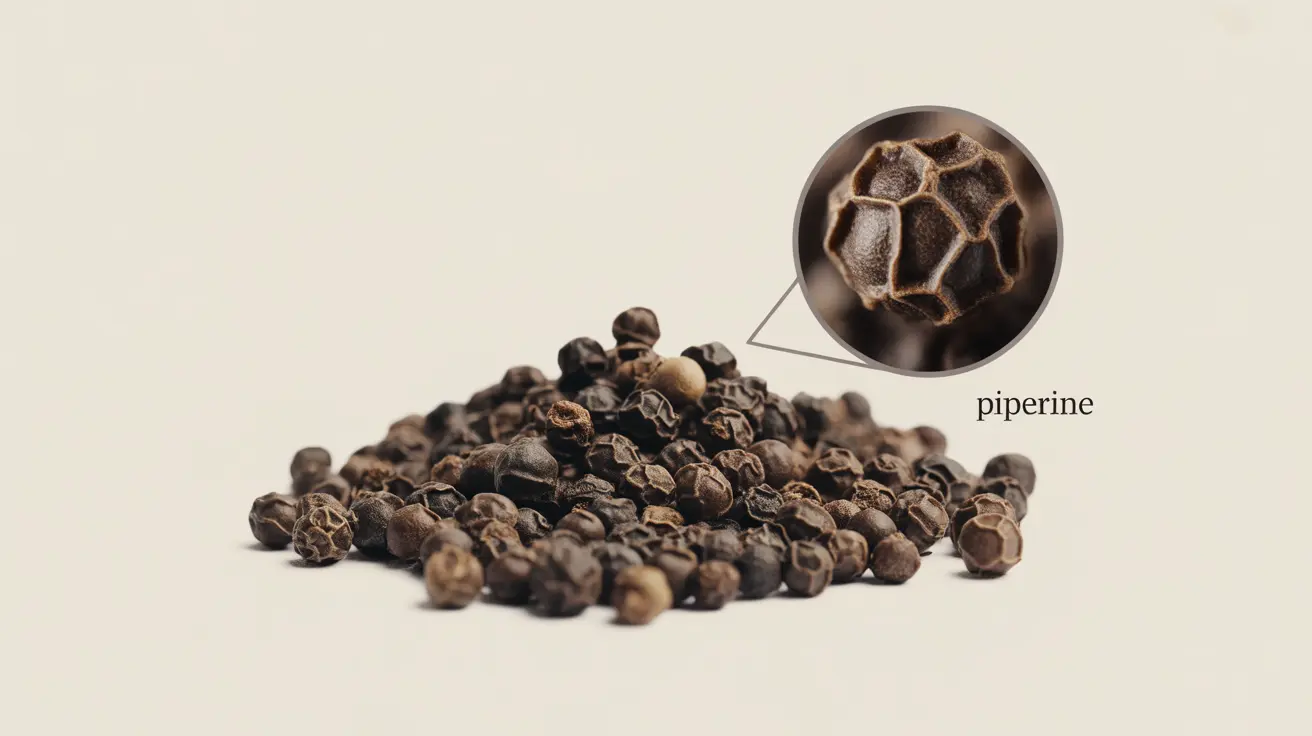Black pepper is more than just a common kitchen spice - it's a powerful ingredient with remarkable health-promoting properties. As one of the world's most popular spices, black pepper contains bioactive compounds, particularly piperine, that contribute to numerous health benefits. Understanding these benefits can help you make informed decisions about incorporating this versatile spice into your daily diet.
In this comprehensive guide, we'll explore the science-backed benefits of black pepper, its safety profile, and how it can enhance your overall health and wellness through various mechanisms.
The Power of Piperine in Black Pepper
Piperine, the primary bioactive compound in black pepper, is responsible for both its distinctive taste and many of its health benefits. This remarkable compound enhances the bioavailability of numerous nutrients and other beneficial substances, making it a valuable addition to your daily diet.
Research has shown that piperine can increase the absorption of various nutrients, including vitamins, minerals, and other beneficial plant compounds, by up to 2000% in some cases. This enhancement occurs through multiple mechanisms, including increasing blood supply to the digestive tract and slowing the breakdown of certain nutrients.
Digestive Health Benefits
Black pepper plays a crucial role in supporting digestive health through multiple mechanisms. It stimulates the production of digestive enzymes, which can help break down food more efficiently and reduce digestive discomfort.
Key digestive benefits include:
- Increased production of digestive enzymes
- Enhanced nutrient absorption
- Reduced bloating and gas
- Improved gut motility
- Support for healthy gut bacteria
Anti-Inflammatory and Antioxidant Properties
The antioxidant properties of black pepper are particularly noteworthy. These compounds help protect your cells from damage caused by free radicals, potentially reducing the risk of various chronic conditions.
Research indicates that black pepper's anti-inflammatory properties may help:
- Reduce systemic inflammation
- Support joint health
- Protect against oxidative stress
- Enhance immune system function
- Combat cellular damage
Safe Usage and Dosage Guidelines
While black pepper is generally safe for most people when used in culinary amounts, it's important to understand appropriate usage guidelines. The recommended daily intake varies depending on individual factors and health conditions.
General guidelines for consumption:
- Use fresh-ground pepper when possible
- Start with small amounts and adjust to taste
- Consider timing of consumption with meals
- Monitor individual tolerance levels
- Consult healthcare providers if taking medications
Frequently Asked Questions
What are the health benefits of black pepper and how does piperine contribute to them?
Black pepper's main compound, piperine, enhances nutrient absorption, provides antioxidant protection, and supports digestive health. It increases the bioavailability of nutrients, helps fight inflammation, and may boost brain function. Piperine specifically contributes by improving nutrient absorption and providing anti-inflammatory effects.
Is black pepper safe to consume during pregnancy and what precautions should be taken?
Black pepper is generally considered safe during pregnancy when used in normal food amounts. However, pregnant women should avoid excessive consumption or supplemental forms. It's advisable to consult with healthcare providers about specific intake recommendations during pregnancy.
How does black pepper improve digestion and nutrient absorption?
Black pepper enhances digestion by stimulating the production of digestive enzymes and increasing nutrient absorption. It helps improve gut motility, reduces bloating, and enhances the bioavailability of various nutrients, particularly when combined with other foods and supplements.
Can black pepper help reduce inflammation and protect against chronic diseases?
Yes, black pepper contains powerful anti-inflammatory and antioxidant compounds that may help protect against chronic diseases. Its active compound, piperine, has been shown to help reduce inflammation markers and provide cellular protection against oxidative stress.
Are there any side effects or risks of consuming too much black pepper?
While black pepper is safe in normal dietary amounts, excessive consumption may cause digestive discomfort, burning sensation, or interact with certain medications. People with sensitive digestive systems should moderate their intake, and those on medications should consult healthcare providers about potential interactions.




